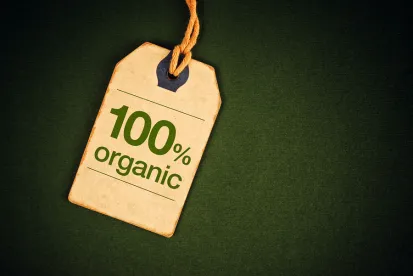Many consumers are drawn to products advertised as healthy and natural, and will often pay a premium for organic products, from foods to personal care items to clothing. But the Federal Trade Commission (FTC) takes a dim view of companies that don’t live up to their green promises. Case in point: Miami-based Truly Organic and its CEO, Maxx Appelman, just settled with the FTC for $1.76 million over allegations that the company’s personal care products advertised as “100% organic” were anything but.
Truly Organic sells its products nationwide through its own website and through national chains such as ulta.com, urbanoutfitters.com, and nordstrom.com. According to the FTC complaint, since at least 2015, Miami-based Truly Organic advertised its body washes, lotions, baby, haircare, bath, and cleaning products as “certified organic, “USDA certified organic,” and “Truly Organic.” The company also claimed its products were vegan, despite the presence of animal-derived ingredients such as honey and lactose.
The FTC alleges that some of Truly Organic’s products contain non-organic ingredients that can be organically sourced and that others have non-organic ingredients that the United States Department of Agriculture (USDA) prohibits in organic handling, such as cocamidopropyl betaine and sodium cocosurfactant. Some items, such as the company’s bath bombs and soaps, contain no organic ingredients at all, and were simply sourced as finished products from suppliers that do not sell any organic products. Not one of Truly Organic’s products was ever certified organic by USDA despite claims to the contrary.
This is not the first time Truly Organic found its bath and other products in hot water with regulators. USDA investigated the company in 2016 for supplying goods to third parties that had false “organic” certifications on their labels. USDA staff informed Appelman that he could not represent any Truly Organic products as “USDA Organic” or “Certified Organic,” and issued a Notice of Warning. Although Appelman initially seemed to comply with the USDA warning, the FTC avers that Truly Organic continued to claim on its YouTube channel that its products were “certified organic,” “USDA organic,” and “vegan,” and regularly repackaged and sold items the company knew were not organic. Appelman also engaged in other fraudulent conduct. More than three months after the USDA closed its 2016 investigation, he deleted the name of the legitimately certified company on an organic certification document and replaced it with Truly Organic’s information to falsely substantiate his company’s “certified organic” claims. He also falsified Material Safety Data Sheets and then provided those documents to third parties for use in marketing Truly Organic products.
The stipulated final order not only imposes liability on the company, but on Appelman personally. In addition to the fine, the order bars Truly Organic and Appelman from making any false or unsubstantiated claims that their products are wholly or partially organic; that they use organic ingredients or are certified organic; that they are vegan; or that they have been certified organic by a third party. The stipulated order prohibits Appelman, Truly Organic and their representatives from touting the environmental or health benefits of any good or service unless they support it with competent and reliable scientific evidence.
The Commission approved the settlement unanimously. Commissioner Rohit Chopra – who has been a notable dissenter in some significant orders over the past year – published a separate statement, characterizing the fine and injunctive provisions as a “commonsense resolution” that imposes personal responsibility on the CEO. He called for the FTC “to codify this approach in a Policy Statement addressing unlawful conduct that is dishonest or fraudulent.” Commissioner Chopra added that “[i]n cases involving such conduct, no-money settlements are inadequate, and the Commission should commit itself to exercising its full authority to protect consumers and honest businesses.”
As we have previously noted, the Federal Trade Commission has a low tolerance for greenwashing or unsupported claims interpreted to be beneficial to health. Whether a brand is advertising its products as “all-natural,” containing “zero VOC emissions,” “organic,” or some other express or implied environmental or health claims, it must back it up with competent and reliable scientific testing. There are certainly instances where the debate with regulators involves legitimate discussions about the level and relevance of a company’s technical substantiation, where reasonable minds could differ, but when businesses engage in garden variety fraud of the sort seen in this instance, companies and their officers are likely to be held to account.




 />i
/>i

